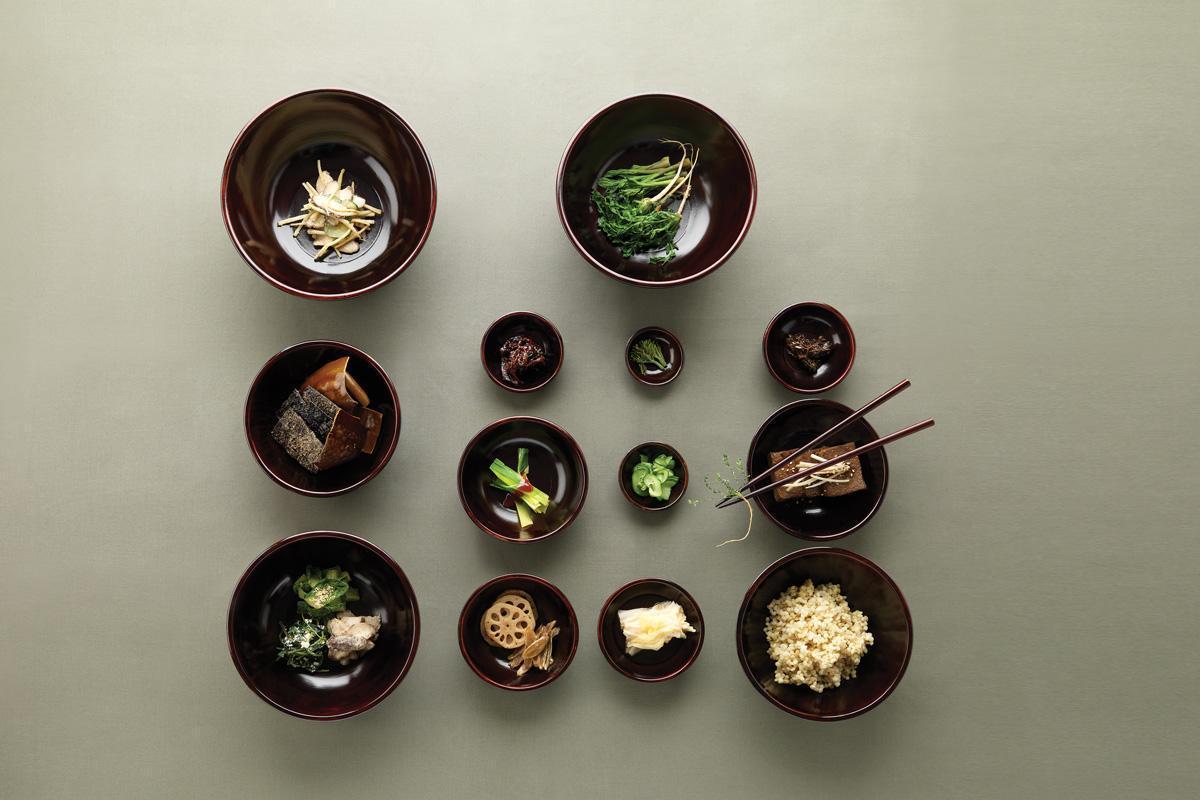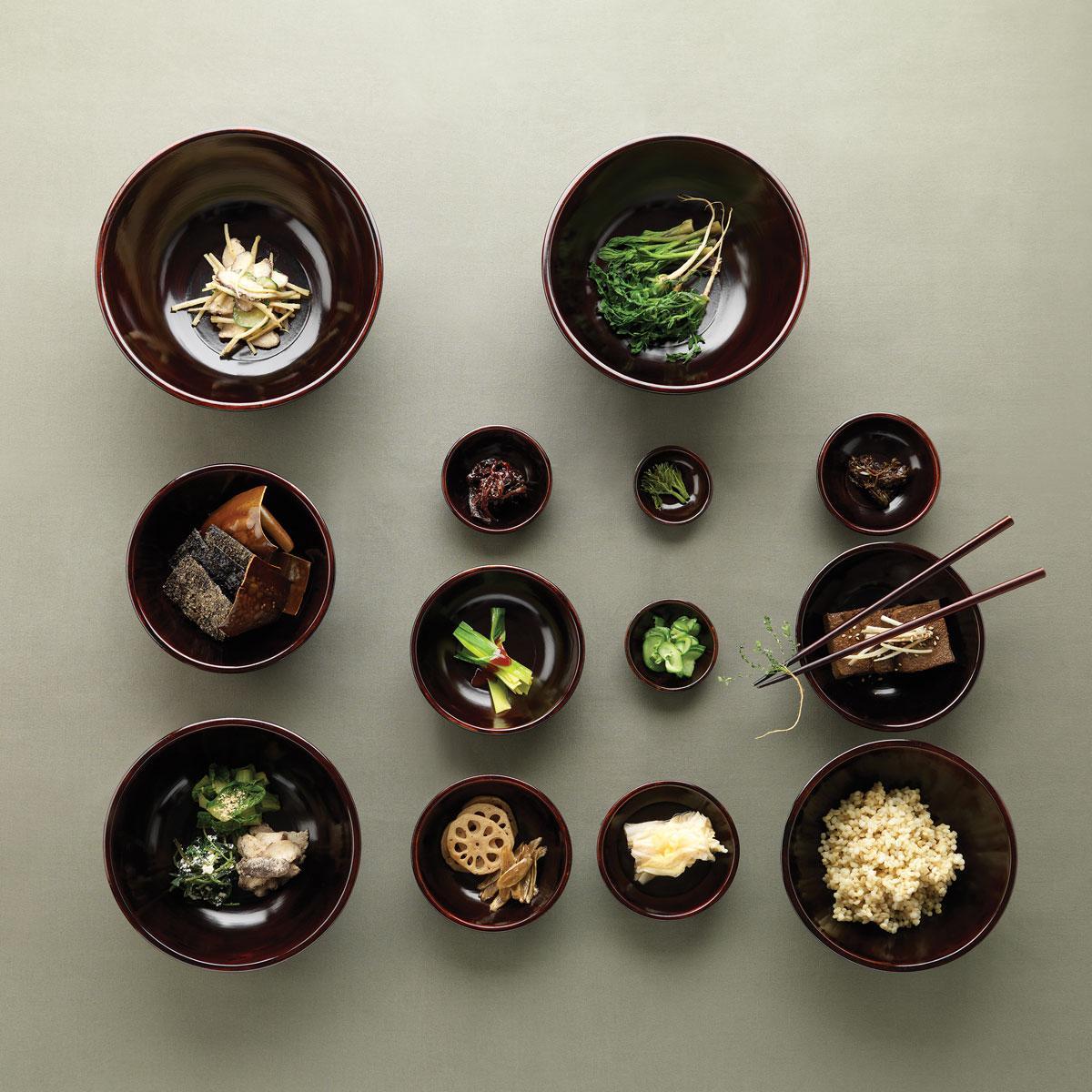AN APPRECIATION FOR ALLLIVING THINGS
Korean temple food has been prepared and consumed for more than 1,700 years. To a Buddhist monk, eating is more than enjoying good taste and nutrition; it is a process of seeking truth. Today, temple food is gaining renewed attention for being as closeto nature as possible, and for reminding people of the essence of life.

AVOIDANCE OF MEAT AND THE FIVE SPICES
Korean temple food is distinguished by the philosophy that allliving things depend on each other for existence. Non-vegetarian ingredients such as meat, fish, chicken, and eggs are prohibited, and also banned are osinchae, which are five spicy and pungent vegetables-green onions, garlic, chives, wild chives, and heunggeo (Scilla scilloides)-whose stimulating flavors are considered to interfere with Buddhist practice.
A NATURE-FRIENDLY AND HEALTHY DIET
Temple food is often known for what it lacks: not only meat and osinchae but also artificial condiments. Fresh seasonal vegetables, grains, beans, and a variety of fermented foods like kimchi, sauces, and seasonings are the staples of temple foods, all of which are a great source of quality protein, vitamins, minerals, fiber, and medicinal properties. Used in place of osinchae are mild-tasting seasonings like mushroom powder, kelp powder, sancho (Xanthoxylum piperitum) powder, perilla seed powder, and fresh bean powder.
SIMPLE YET RICH TASTE OF NATURE
Due to the Buddhist inclination to eat seasonal vegetables and grains as close to their natural form as possible, temple cuisine has relied on simple and light cooking techniques such as lightly seasoning, steaming, roasting, pickling or wrapping. The resulting dishes are simple and light, bringing out the natural flavor of the ingredients. The simple-tasting and low-calorie cuisine made of 100% vegetarian ingredients has come to represent nature-friendly and healthy diet.
Tip : KOREA TEMPLE FOOD CENTER
Don’t miss the rare opportunity to learn about 1700-year old Korean temple cuisine from a monk and guru of temple food. Participants get to learn about the temple cuisine that boasts plain but natural tastes and have a conversation with monks over tea.



![[A ZONE] Gangnam Food Spot](https://m.dgram.co.kr/wp-content/uploads/2020/09/A존-알래스카3-특성이미지_S-218x150.jpg)
![[A ZONE] Gangnam Life Style](https://m.dgram.co.kr/wp-content/uploads/2020/09/로우클래식1-특성이미지_S-218x150.jpg)








![[A ZONE] Gangnam Food Spot](https://m.dgram.co.kr/wp-content/uploads/2020/09/A존-알래스카3-특성이미지_S-324x160.jpg)
![[A ZONE] Gangnam Life Style](https://m.dgram.co.kr/wp-content/uploads/2020/09/로우클래식1-특성이미지_S-324x160.jpg)




